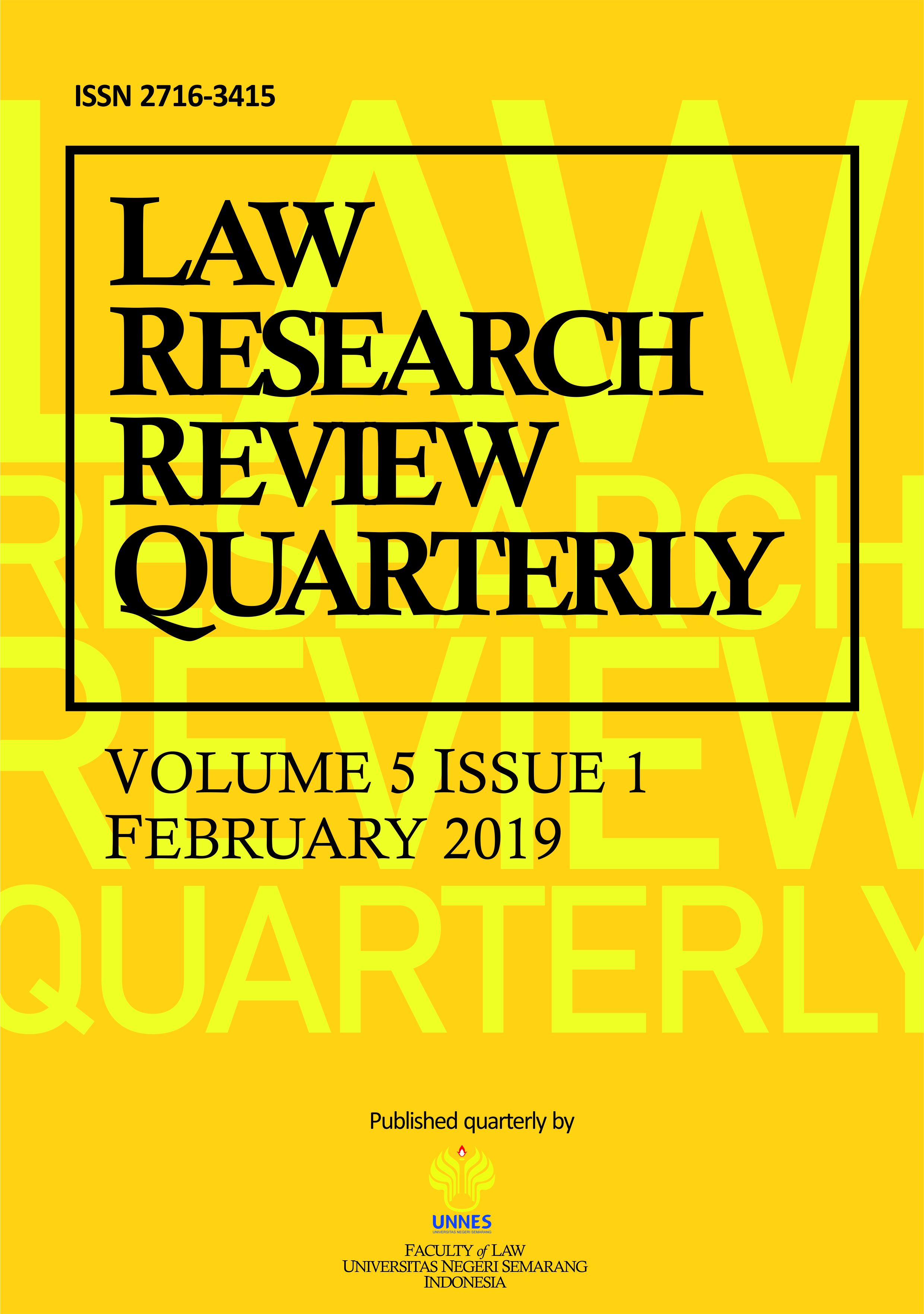The Strength of Legal Proof in Filing a Civil Lawsuit Against Corruption Actors
Main Article Content
Abstract
The use of civil instruments in corruption cases is fully subject to the provisions of civil law both formally, materially and even to immaterial losses. In accordance with Articles 32, 33 and 34 of Law Number 31 of 1999 concerning Eradication of Corruption, there is a formula regarding the submission of the results of the investigation into the State's loss to the State Attorney. The prosecutor must be able to really prove that the defendant actually committed an act of corruption. In accordance with the concept of proof in civil law, JPN must be able to convince the panel of judges by basing on a clear legal basis, the existence of an element of loss and explaining the occurrence of acts of corruption that are detrimental to the State's finances. However, it is often difficult to substantiate civil lawsuits to prove, given that the perpetrators of corruption in general are those who have very strong positions or experts. The research method used in this research is analytical descriptive. The research results obtained can be seen from the strength of the evidence in filing a civil claim must first trace assets owned by the perpetrators of corruption as the basis and reason for the lawsuit but the civil suit has not been effectively proven by relying only on special criminal courts because the imposition of fines and reimbursement is included without taking into account any immaterial losses that can be paid in the future.
Article Details
All writings published in this journal are personal views of the authors and do not represent the views of this journal and the author's affiliated institutions. Author(s) are retain the copyrights of the Article. However, before publishing, it is required to obtain written confirmation from Author(s) in order to ensure the originality (Author Statement of Originality). The statement is to be signed by at least one of the authors who have obtained the assent of the co-author(s) where applicable.This work licensed under a Creative Commons Attribution-ShareAlike 4.0 International (CC BY-SA 4.0)
References
• Leback, Teori-Teori Keadilan, Six Theories of Justice Penerjemah Yudi Santoso, Bandung: Nusa Media, 2012
• Indriyanto Seno Adji, Korupsi dan Penegakan Hukum, Diadit Media, Jakarta, 2009
• Mujahid A. Latief, Pengembalian aset Korupsi Via Instrumen Perdata, www.antikorupsi.org/en/content/pengembalian-aset-korupsi-instrumen-perdata
• Ka.Sie Perdata dan TUN Kejaksaan Negeri Kota Magelang
